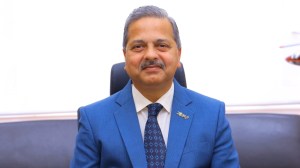Pharma firms divided over new WTO patent norms
A new World Trade Organisation (WTO) treaty signed to tighten patent norms early this week has divided the Indian pharmaceutical firms as ne...

A new World Trade Organisation (WTO) treaty signed to tighten patent norms early this week has divided the Indian pharmaceutical firms as never before.
The agreement was signed to prepare the groundwork for WTO’s ministerial meeting which starts in Hong Kong next week. The deal makes it easier for poor countries to import cheap copies of life-saving drugs but difficult for Indian drug producers to make copies of any patented drugs and export them to other countries.
The move is offered as a ‘‘development package’’ for poor countries that commerce ministers plan to approve at their meeting in Hong Kong. Reacting to the agreement, Y.K. Hamied, chairman of pharmaceutical firm Cipla, says the deal is not in India’s interest. ‘‘We should not allow monopolies to be created in the Indian industry as India is facing a perpetual health emergency,’’ he said.
Asking the Indian government to reject the accord, he says the new accord will make patented drugs expensive for Indians as the accord translates a waiver to the rules agreed by 148 WTO member nations in August 2003 into binding trade law. This waiver ends in December next year. ‘‘This deal will only help the multinationals,’’ he added.
However, officials at Ranbaxy disagreek with Hamied’s view. ‘‘This (deal) will provide Indian companies the opportunity to supply essential drugs to countries that do not have manufacturing capabilities of their own. We welcome this decision,’’ said Ranbaxy’s executive director Ramesh Adige.
The agreement says production under compulsory licensing must be predominantly for the domestic market and not for exports. As with an earlier waiver, the permanent amendment will allow any member country to export pharmaceutical products made under a compulsory licence system that is after paying a royalty to the patent holder. ‘‘Every country has compulsory licensing provisions in one form or the other. However, it is our belief that compulsory licensing should not be used as a tool to subvert the patent system,’’ Adige said. The biggest concern for the multinationals was if the generics produced by developing nations get exported to industrialised countries.The Pharmaceutical Research and Manufacturers of America welcomed the completion of the negotiations on TRIPS.
PhRMA President and CEO Billy Tauzin said: ‘‘These safeguards will be critical in ensuring that medicines produced and exported under the solution reach the intended countries, and it is significant that WTO members agreed in Geneva to implement those safeguards.’’
“The agreement to amend the TRIPS provisions confirms once again that members are determined to ensure the WTO’s trading system contributes to humanitarian and development goals,’’ Director-General of WTO, Pascal Lamy said in a statement posted on its website.






- 01
- 02
- 03
- 04
- 05

























